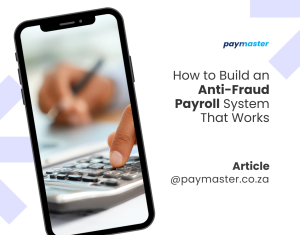If you’ve ever stared at a contract template wondering, “UIF? BCEA? Eish…” — you’re not alone. In fact, hiring in South Africa can often feel like a game where the only prize is avoiding legal trouble.
On top of that, between BEE targets, minimum wage rules, sick leave, tax deductions, and staff constantly asking, “When do I get my IRP5?” — it’s a lot to juggle.
However, don’t stress. Instead, this guide breaks it down — no jargon, no headaches, and no late-night Googling.

1️⃣ BCEA (Basic Conditions of Employment Act)
The BCEA outlines the minimum standards for employment in South Africa — this includes hours of work, leave, pay, contracts, and termination.
If you’re hiring someone, you need to ensure the following:
Firstly, they must have a written contract.
Secondly, they should be paid at least the minimum wage.
Thirdly, they must receive the correct leave (annual, sick, and family responsibility).
Finally, they need to work within legal hours, including any overtime.
The bottom line? If you wouldn’t accept it at your own job, it probably doesn’t pass the BCEA test.
Learn more about BCEA on the Department of Employment and Labour’s site.
2️⃣ UIF (Unemployment Insurance Fund)
What it means:
If someone works for you more than 24 hours per month, you must register them for UIF. This is important because it acts as insurance if they lose their job or go on maternity leave.
To stay compliant, you must do the following:
Firstly, deduct 1% of their salary.
Secondly, pay an additional 1% from your side.
Thirdly, submit monthly declarations via uFiling or payroll software.
Without UIF, there are no benefits for them if things go south. And yes, it’s a legal requirement.
Register here via UIF’s official uFiling system.
3️⃣ BEE (Broad-Based Black Economic Empowerment)
What it means:
BEE encourages transformation in the workplace. While it’s not technically a hiring law, it influences how businesses recruit, promote, and report on staff demographics.
Key for SMEs:
- BEE affects tenders, corporate clients, and funding
- Hiring previously disadvantaged individuals supports BEE goals
- It’s not a strict quota system — but being intentional helps both you and the economy
Read the basics about BEE here.

4️⃣ Other Hiring Must-Knows (Don’t Forget These!)
- PAYE (Pay As You Earn): If your employee earns above the tax threshold, you must register for PAYE and deduct tax.
- Contracts: Verbal agreements count, but written ones protect you better.
- Probation: It’s legal — but you still need valid reasons for termination during this period.
So, What the Heck Are You Even Hiring For?
You’re hiring for:
– Skills
– Culture fit
– But also compliance — because skipping legal basics is like skipping car insurance because “you drive carefully.”
👋 Let’s Help You Sleep Better at Night
At TeamMaster HR, we help small businesses:
- Draft compliant contracts
- Register UIF
- Set up PAYE
- Keep BCEA & BEE in check
- Recruit rockstars the right way
All for one flat fee. No fuss. No headaches.





